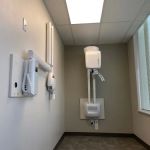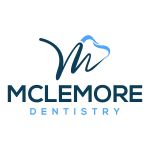- Why Effective Teeth Cleaning Matters
- Brushing Techniques for Teeth Cleaning
- Flossing and Other Tools
- Maintaining Oral Health Between Dental Visits
- Best Products for Teeth Cleaning
1. Why Effective Teeth Cleaning Matters
Proper and effective teeth cleaning is essential for maintaining optimal oral health. Brushing your teeth twice a day and incorporating flossing into your routine helps prevent plaque buildup, cavities, and gum disease. Without effective teeth cleaning methods, your oral hygiene could be compromised, leading to tooth decay, bad breath, and more serious dental issues. It's important to recognize that the quality of your teeth cleaning can significantly impact your overall well-being, as oral health is linked to your heart health, diabetes, and other medical conditions.
2. Brushing Techniques for Teeth Cleaning
Brushing your teeth might seem straightforward, but using the right techniques is crucial to ensure that your teeth are effectively cleaned. The American Dental Association (ADA) recommends using a soft-bristled toothbrush and fluoride toothpaste. When brushing, aim for two minutes, focusing on the outer surfaces, inner surfaces, and chewing surfaces of your teeth. Use gentle circular motions rather than vigorous back-and-forth scrubbing, which can damage your gums and enamel over time.
Additionally, make sure to brush your tongue and the roof of your mouth to remove bacteria and improve breath freshness. Don’t forget to replace your toothbrush every three to four months or sooner if the bristles are frayed.
3. Flossing and Other Tools
Flossing is an integral part of a complete teeth cleaning regimen. Floss helps to remove plaque and food particles from between your teeth and along the gumline, where your toothbrush may not reach. The ADA recommends flossing once a day, ideally before bedtime. Using the right flossing technique is essential for effectiveness—gently slide the floss between your teeth, curving it around the base of each tooth to clean the surface.
In addition to flossing, other tools can enhance your oral hygiene routine. Consider using an electric toothbrush, which has been shown to be more effective at reducing plaque and gum disease compared to manual brushing. Mouthwash is another helpful tool, as it can reduce bacteria and freshen your breath, but it should not replace brushing or flossing.
4. Maintaining Oral Health Between Dental Visits
Regular dental checkups are essential for professional teeth cleaning and to spot any early signs of oral health issues. However, the work you do between visits is just as important. Maintaining a consistent and thorough teeth cleaning routine helps prevent tooth decay, gingivitis, and other oral health problems. Make sure to brush twice daily, floss regularly, and use other oral care products like mouthwash to keep your teeth and gums in top shape. Avoid sugary foods and drinks, as these can contribute to plaque buildup and cavities.
If you're experiencing any pain, swelling, or bleeding gums, it's essential to consult your dentist sooner rather than waiting for your next appointment. Early intervention can prevent more serious issues down the line.
5. Best Products for Teeth Cleaning
Using the right products can make a significant difference in your teeth cleaning routine. When choosing toothpaste, look for one that contains fluoride, which helps protect against cavities and strengthens enamel. Toothbrushes come in both manual and electric options, with electric toothbrushes being favored by many for their ease of use and superior plaque removal capabilities.
Some highly recommended products include:
- Oral-B Pro 1000 Electric Toothbrush: Known for its effectiveness at removing plaque and improving gum health.
- Listerine Mouthwash: A trusted mouthwash that helps reduce bacteria and keep your breath fresh.
- Glide Pro-Health Floss: This dental floss slides easily between teeth and is gentle on gums.
Investing in high-quality oral care products can significantly enhance your oral hygiene efforts and help you maintain a bright, healthy smile.







 Scott Soderquist, DDS, MS0.0 (0 review)
Scott Soderquist, DDS, MS0.0 (0 review) Pediatric Dentistry Kahala4.0 (23 review)
Pediatric Dentistry Kahala4.0 (23 review) Topaz Dentistry & Braces3.0 (216 review)
Topaz Dentistry & Braces3.0 (216 review) Dayspring Pediatric Dentistry4.0 (34 review)
Dayspring Pediatric Dentistry4.0 (34 review) Dentlife Dental Care4.0 (15 review)
Dentlife Dental Care4.0 (15 review) McLemore Dentistry4.0 (330 review)
McLemore Dentistry4.0 (330 review) The Importance of Oral Health Education During Pregnancy for a Healthy Pregnancy
The Importance of Oral Health Education During Pregnancy for a Healthy Pregnancy Best Tips for Brushing Your Teeth Properly for Healthy Gums: Essential Techniques for Oral Health
Best Tips for Brushing Your Teeth Properly for Healthy Gums: Essential Techniques for Oral Health Why Skipping Dental Checkups Can Lead to Bigger Oral Health Problems
Why Skipping Dental Checkups Can Lead to Bigger Oral Health Problems Advantages of Porcelain Dental Restorations
Advantages of Porcelain Dental Restorations How Can Diabetes Cause Tooth and Gum Problems? Preventing and Managing Oral Health Issues
How Can Diabetes Cause Tooth and Gum Problems? Preventing and Managing Oral Health Issues Healthy Habits for Promoting Good Oral Health and Hygiene: Tips for a Healthy Smile
Healthy Habits for Promoting Good Oral Health and Hygiene: Tips for a Healthy Smile